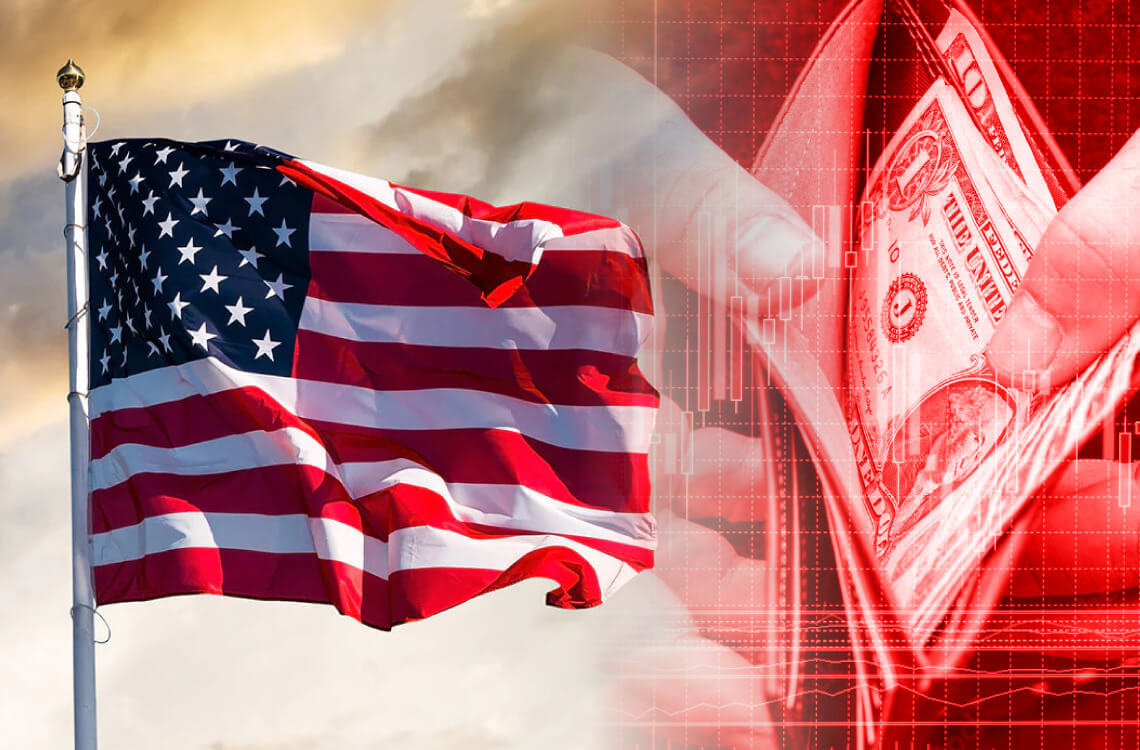A high-stakes negotiation is in the works in Washington as a critical deadline looms to lift the U.S. federal government’s $31.4 trillion debt ceiling.
In a political climate fraught with a razor-thin margin in Congress, the consequences of a failure to resolve the current standoff are potentially catastrophic.
The urgency of addressing the debt ceiling
As we move closer to the clock striking midnight on this fiscal time bomb, the deadline of June 5, revised from an initial June 1 date, is fast approaching.
The Treasury Department has asserted that the government could find itself unable to meet its financial obligations if Congress does not act decisively.
However, sealing a deal is no easy feat. An agreement between President Joe Biden and top congressional Republican, Kevin McCarthy, is merely the starting gun in a grueling race that involves the partisan hurdles of a sharply divided Congress.
Representative Patrick McHenry, a key Republican negotiator in the talks, acknowledged the toughness of the situation. He underlined that the resolution of these complex issues is not going as smoothly as anticipated.
Yet, he insisted that Republicans are remaining focused on the central task at hand – significant spending cuts. He explained, “You can’t get there if you don’t deal with the thorny issues in a reasonable way.”
Navigating partisan roadblocks in the path to resolution
However, the road to an agreement is fraught with potential tripwires. A faction of hardline Republicans in the House of Representatives is gearing up to block any bill that fails to meet their high standards, which includes a demand for steep spending cuts. In an opposing corner, progressive Democrats have issued warnings of their own.
They are threatening to withhold their support for certain proposed compromises, particularly those imposing new work requirements on federal anti-poverty programs.
The current power balance in Congress is teetering on a knife’s edge. Republicans hold sway in the House with a 222-213 margin, while Democrats have a 51-49 Senate majority.
This provides a narrow path for the passage of any agreement between the Democratic president and Republican speaker.
The path forward is equally daunting, with Republicans eager to significantly slash government spending over the coming decade in a bid to slow the ballooning of the U.S. debt. The tentative deal that has been brokered thus far might not meet their ambitious target.
Despite the ongoing friction, both parties have tentatively concurred on raising the debt ceiling to cover the country’s borrowing needs up to the November 2024 presidential election.
The preliminary agreement entails boosting spending on military and veterans’ care while setting limits on many discretionary domestic programs.
However, the Republican camp has rebuffed Biden’s suggested tax increases, with neither side displaying any appetite for addressing the fast-growing health and retirement programs, which are likely to contribute to the escalating debt in the forthcoming years.
The potential consequences of a default
Should Congress fail to reach a consensus and lift the self-imposed debt ceiling by June 5, the fallout could be seismic. A possible default could trigger shockwaves through financial markets and potentially plunge the United States into a deep recession.
Credit-rating agencies are closely watching the situation, with several already placing the U.S. on review for a possible downgrade, a move that could elevate borrowing costs and undermine the country’s global financial standing.
The specter of the 2011 standoff hangs heavily over the current situation. A similar stalemate led to a downgrade of the U.S. debt by Standard & Poor’s, resulting in a surge in borrowing costs and a plunge in markets.
As the debt ceiling debate continues to unfold in Washington, the country watches, awaiting the outcome of these critical negotiations.





